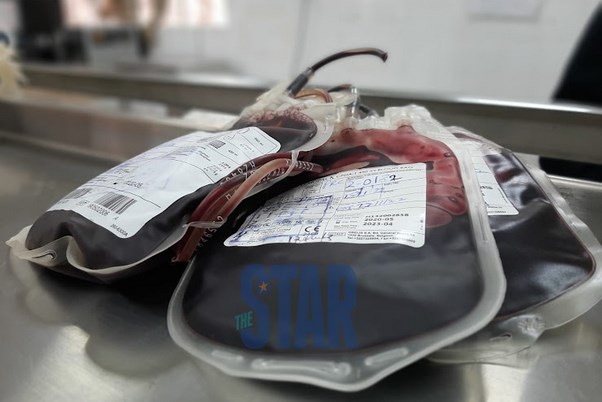You can now know the final fate of every blood component you donate, through a new system introduced by the transfusion service.
The anti-theft system was initially promised by Health CS Mutahi Kagwe in March 2020, when he revealed blood donated in Kenya was being stolen and sold in Somalia.
Head of Kenya National Blood Transfusion Service Dr Nduku Kilonzo on Monday said the system is now in place.
She said the new track and trace system will record every stage of the blood transfusion process, from the donor to the recipient.
“We’ve set track and trace system for accountability. It’s on the Chanjo platform which also registers Covid-19 vaccinations,” Dr Kilonzo said during the celebrations to mark World Day of the Sick at the Kenyatta National Hospital.
“You can go to the portal and register as a blood donor. This will keep your records,” she added.
After CS Kagwe’s announcement in 2020, the Directorate of Criminal Investigations said that some officers of the KNBTS could have been part of a cartel that was siphoning blood donated by Kenyans and selling it in Somalia.
At that time, DCI George Kinoti officers said the blood shortage was artificial.
During World Blood Donor Day on June 14, last year, Health PS Susan Mochache also said track and trace system was part of international best practice.
“The Ministry continues to review these guidelines in line with international blood safety and standards to provide a framework for enhanced safety, efficacy and efficiency of blood services,” she said.
Yesterday, Dr Kilonzo asked each eligible Kenyan to donate a pint of blood on their birthday, saying this would end the current shortage.
World Health Organisation projects that one per cent of the population will require blood at one time or another in their lives.
This translates to about 500, 000 pints of blood for Kenya’s 50 million population.
However, the country collects less than a quarter of that volume.
Donors must weigh above 50 kilograms, be in the age bracket of 16-65 years, have a Haemoglobin (HB) concentration of 12.5gm per decilitre and a normal blood pressure of 130/90.
Yesterday’s event was to be presided over by Nairobi Archbishop Philip Anyolo, who was unable to attend.
The Covid-19 pandemic worsened the shortage crisis as people shunned going to hospitals, coupled with the closure of colleges and schools.
“In the countries with lockdown orders, donor anxiety and fear of Covid-19 because due to misconceptions and misinformation many have been hindered from accessing blood transfusion services,” a WHO survey conducted in September 2020 said.
Source The Star

